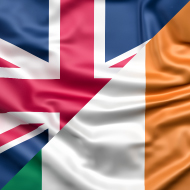UK and Ireland facilitate mutual recognition of veterinary degrees

Mutual agreement
The Royal College of Veterinary Surgeons (RCVS) and the Veterinary Council of Ireland (VCI) have agreed an historic mutual agreement to facilitate the recognition of each others’ accredited veterinary degrees.
At its meeting on 3 October, the RCVS Council approved the mutual recognition agreement (MRA) which had previously been approved by the Council of the VCI on 25 September.
The MRA is the first agreement that has been signed on a bilateral basis between the UK and another country in the European Economic Area (EEA) – meaning that, through opportunities for an expert reviewer from each party to sit on local accreditation panels and sharing of visitation outcomes, the veterinary degree from University College Dublin can be recognised by the RCVS and the current eight UK veterinary degrees (including the recently approved University of Surrey degree) can be recognised by the VCI.
Currently, EEA citizens who graduate from University College Dublin have an automatic right to work in the UK via the European Union’s Mutual Recognition of Professional Qualifications Directive. The MRA means that, whatever the outcome of the UK leaving the European Union, following successful accreditation visits, University College Dublin graduates can join the Register of Veterinary Surgeons in the UK, and UK graduates can join the VCI’s equivalent register.
The MRA also stipulates that, in order to maintain the agreement, the RCVS and VCI will have the opportunity to attend accreditation visitations to each other’s veterinary schools in order to ensure that they are meeting their respective accreditation criteria for veterinary education. The current expectation is that these visitations will be carried out in conjunction with – or as part of – those of any international accreditation bodies, such as the American Veterinary Medical Association.
It is expected that, later this month, the VCI president, Peadar Ó Scanaill and CEO Niamh Muldoon, will meet with RCVS president, Niall Connell and RCVS director of education, Dr Linda Prescott-Clements, in London to sign the agreement.



 The latest
The latest